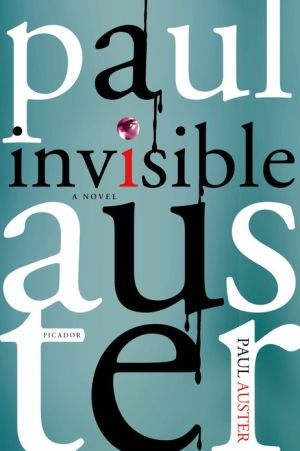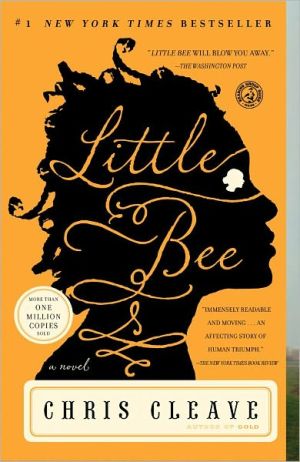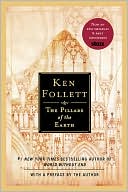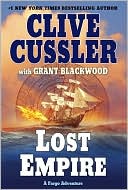Invisible
Sinuously constructed in four interlocking parts, Paul Auster’s fifteenth novel opens in New York City in the spring of 1967, when twenty-year-old Adam Walker, an aspiring poet and student at Columbia University, meets the enigmatic Frenchman Rudolf Born and his silent and seductive girfriend, Margot. Before long, Walker finds himself caught in a perverse triangle that leads to a sudden, shocking act of violence that will alter the course of his life.\ Three different narrators tell the story...
Search in google:
“One of America’s greatest novelists” dazzlingly reinvents the coming-of-age story in his most passionate and surprising book to date.The Barnes & Noble ReviewYou don't read a novel by Paul Auster so much as you give in to one. There's the smooth and polished prose to tempt you. There are mysteries and misdeeds to ensnare you. There's autobiography, course. And there's the sheer, mad pace of the thing, rip-snorting right out of the gate, all of it conjured to life in an atmosphere of pervasive unease. You read on to make sense of it. You read on to be free of it. You read on because you must. And so it is with Invisible, Auster's unsettling 13th novel.
\ Clancy MartinAs soon as you finish Paul Auster's Invisible you want to read it again. And not because, as sometimes with his novels…you suddenly suspect, at the very end, that you haven't properly understood a word of what has gone before. You want to reread Invisible because it moves quickly, easily, somehow sinuously, and you worry that there were good parts that you read right past, insights that you missed. The prose is contemporary American writing at its best: crisp, elegant, brisk. It has the illusion of effortlessness that comes only with fierce discipline. As often happens when you are in the hands of a master, you read the next sentence almost before you are finished with the previous one…if, like me, part of why you read is the great pleasure of falling in love with a novel, then read Invisible. It is the finest novel Paul Auster has ever written.\ —The New York Times\ \ \ \ \ Jeff Turrentine"I sometimes confuse my thoughts about the world with the world itself," says one character at the end of Invisible. "I'm sorry if I offended you." Some undoubtedly will be offended; you either enjoy the dizzy feeling you get from being lost in the funhouse, or you feel queasy and head for the exit. One hopes that, in this case, readers will stay for the duration. The pleasures found inside are well worth the labor required to uncover them.\ —The Washington Post\ \ \ Publishers WeeklyIn his latest, Auster is in classic form, perhaps too perfectly satisfying the contention of his wearied protagonist: “there is far more poetry in the world than justice.” Adam Walker, a poetry student at Columbia in the spring of 1967, is Auster's latest everyman, revealed in four parts through the diary entries of a onetime admirer, the confessions of his once-close friend, the denials of his sister and Walker's own self-made frame. With crisp, taut prose, Auster pushes the tension and his characters' peculiar self-awareness to their limits, giving Walker a fractured, knowing quality that doesn't always hold. The best moments from Walker's disparate, disturbing coming-of-age come in lush passages detailing Walker's conflicted, incestuous love life (paramount to his “education as a human being,” but a violation of his self-made promise to live “as an ethical human being”). As the plot moves toward a Heart of Darkness–style journey into madness, the limits of Auster's formalism become more apparent, but this study of a young poet doomed to life as a manifestation of poetry carries startling weight. (Nov.)\ \ \ \ \ Library JournalAuster's 15th novel at first may sound like another story about the familiar themes the writer's fans have come to expect: Brooklyn and New York, bohemian protagonists and their enigmatic sidekicks, meaningful quests for truth, and convoluted plots realistic enough to keep you from second-guessing the actions of the characters. Indeed, the story incorporates all such elements: divided into four distinct parts, told by three different narrators, and spanning 40 years, it is centered on the relationship among an aspiring Columbia University student-poet, a mysterious professor, and the professor's girlfriend that starts out as friendship but ends in manipulation and murder. Whether such themes still excite longtime Auster fans is less important than his still remarkably strong storytelling—perhaps even more so than in recent works of fiction—that his characters are still unpredictable and full of passion for life, and that once we start reading those masterfully bare sentences, we don't want to stop. VERDICT If you've never read Auster, this is a great place to start and work your way backward to such classics as the City of Glass and Leviathan. If you've been a fan for a long time, you will not be disappointed.—Mirela Roncevic, Library Journal\ \ \ \ \ Kirkus ReviewsMany readers familiar with the work of Paul Auster consider him to be one of the most profound and provocative of contemporary novelists, a literary magician, a master of making fiction about the art-or the sleight-of-hand illusion-of making fiction. Auster attracted a loyal following in the mid-1980s for what was subsequently known as his New York Trilogy-an elliptical trio of genre subversions and meditations on identity-but his reviews have been mixed in the two decades since the subsequent Moon Palace and The Music of Chance. Now comes Invisible, a novel of such virtuosity and depth that it should not only unite the faithful in a hallelujah chorus, it deserves to draw legions of converts as well. More than a return to form, this might be Auster's best novel yet, combining his postmodern inquiries into the nature of fiction and the essence of identity-the interplay between life and art-with a thematic timelessness in its narrative of virtue and evil, guilt and redemption. If this isn't quite Auster's Crime and Punishment, it could be his Notes from the Underground. It's also a novel he couldn't have written a couple of decades ago, during what was previously considered his peak. Though it concerns a 20-year-old, literary-minded student at Columbia University in 1967-when the literary-minded Auster was the same age at the same university-its narrative reflects the autumnal perspective of four decades later, with a protagonist whose life has taken different turns than Auster's. In fact, there are three distinct narrative voices, as sections employ the first-person "I," the second-person "you" and the third person "he" in relating the story of how the student's encounter with a visitingprofessor from Paris and his silent, seductive girlfriend changes the lives of all three and others as well. The labyrinth of plot and narrative also includes the student's beautiful sister, a mother and daughter in France through whom he seeks atonement and a fellow Columbia alum who has become, like Auster, a successful writer. There are sins, obsessions, a corpse and a thin line between fantasy and memory. To reveal more would rob the reader of the discoveries inherent within this novel's multilayered richness. Auster writes of "the obsessive story that has wormed its way into your soul and become an integral part of your being." This is that story.\ \ \ \ \ From the Publisher\ "[Auster's]use of intertextuality and his crisp, simple prose will keep listeners fully engaged from beginning to end." –Library Journal "The story of a Columbia University undergraduate who encounters a strange French couple who change the course of his life is always compelling, especially as read in the gruff, detached growl of Auster’s voice." – Winston-Salem Journal "Now comes Invisible, a novel of such virtuosity and depth that it should not only unite the faithful in a hallelujah chorus, but it deserves to draw legions of converts as well. More than a return to form, this might be Auster's best novel yet... Auster writes of 'the obsessive story that has wormed its way into your soul and become an integral part of your being.' This is that story." – Kirkus Reviews on the book "Auster as a storyteller is captivating and simply good, just like the writer Paul Auster...With Paul Auster's smoky and straightforward voice, he stands out like a veritable auteur in the audio book genre...Invisible is worth listening to." - Metapsychology \ \ \ \ \ The Barnes & Noble ReviewYou don't read a novel by Paul Auster so much as you give in to one. There's the smooth and polished prose to tempt you. There are mysteries and misdeeds to ensnare you. There's autobiography, course. And there's the sheer, mad pace of the thing, rip-snorting right out of the gate, all of it conjured to life in an atmosphere of pervasive unease.\ You read on to make sense of it. You read on to be free of it. You read on because you must. And so it is with Invisible, Auster's unsettling 13th novel.\ It's 1967 and Adam Walker, a 20-year-old literature student at Columbia University, is unhappily hanging around the edges of a party, feeling sorry for himself. He's a loner and a poet and well read enough that when he first meets Rudolph Born, Adam's first thought is of an obscure figure with the same name in Dante's Inferno. Born, a visiting professor in his mid-30s, tells Adam that he and his strangely silent girlfriend, Margot, noticed the young man's distress and felt compelled to make sure he wasn't suicidal.\ As the trio talk, of Born's boredom with Columbia, of Adam's concerns about the Vietnam draft, of Cuba and Kennedy and other touchstones of the era, Adam's disquiet grows. Born is so opinionated and unorthodox that Adam can't get a read on him. Margot, meanwhile, thin and dark and maybe even beautiful -- again, Adam can't quite tell -- won't stop staring. The pair, with European accents Adam can't place and an agenda he can't fathom, send him reeling.\ "The truth was that I had never run across people like this before, and because the two of them were so alien to me, so unfamiliar in their affect, the longer I talked to them, the more unreal they seemed to become -- as if they were imaginary characters in a story that was taking place in my head."\ The trio parts ways, but not for long. Adam's chance meeting with Born is soon repeated, this time in a seedy student bar where, after the briefest of conversations, Born offers to set Adam up as the editor of a literary magazine. Adam agrees and, just like that, tumbles down the rabbit hole of Born's twisted world. An affair with Margot, a botched mugging, and a brutal murder all follow in quick succession. In this heightened reality, Born's true nature emerges. So does Adam's.\ Just as you're making sense of thecat-and-mouse game Auster has set in motion, he hands the story off to someone else. It's suddenly 40 years later, and the pages you've just read turn out to be the opening of Adam's memoir. Jim, an old college friend, is now the narrator of the tale, which Adam has divided into the four seasons of the year 1967. We now see Adam from Jim's point of view, learn that he was "handsome as a movie star" and that, in the eyes of many of his classmates, he was deemed the most likely of them to find success.\ Auster fans will know not to get too comfortable. The narrative soon switches back to Adam, who, in a hallucinatory second-person rush, spins the tale of the hot, humid summer of '67, spiked with a month of incest and increasing mental instability. Add in a few weeks in Paris, another affair, a botched attempt at revenge, and a run-in with an openly malevolent Born, and not one centimeter of space in the entire universe seems safe.\ It's classic Auster, of course, the story within the story. His novel City of Glass, part of the New York Trilogy, features Daniel Quinn, a reclusive crime writer whose life swiftly unravels as he pretends to be a private detective named Paul Auster. Timbuktu traces a hobo poet's final hours from the viewpoint of a dog. The Book of Illusions turns on the question of identity of the filmmaker, Hector Mann, who may or may not be dead.\ In Invisible, told by multiple characters at different points in time, the ground never stops shifting. Even when we've been handed all the pieces, things still are not what they seem. Here's Jim, discussing his edits of Adam Walker's memoir:\ "I have already described how I revamped Walker's notes for Fall. As for the names, they have been invented according to Gwyn's instructions, and the reader can therefore be assured that Adam Walker is not Adam Walker. Gwen Walker Tedesco is not Gwen Walker Tedesco...Last of all, I don't suppose it is necessary to add that my name is not Jim."\ So nothing is what it seems except, of course, Auster's own seeming ceaseless questions about identity, memory, and character. Readers hoping for answers this time around are out of luck. Like a hound on the hunt, you chase and race after the scent of a resolution. Auster, meanwhile, if he does indeed know what he thinks, is still too foxy to share. --Veronique de Turenne\ Veronique de Turenne is a Los Angelesbased journalist, essayist, and playwright. Her literary criticism appears on NPR and in major American newspapers. One of the highlights of her career was interviewing Vin Scully in his broadcast booth at Dodger Stadium, then receiving a handwritten thank-you note from him a few days later.\ \ \








